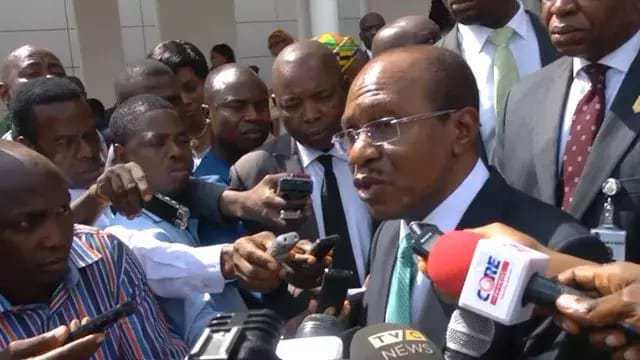There are no products in your shopping cart.
| 0 Items | £0.00 |

 NIGERIA'S commercial banks are to go through a fresh recapitalisation exercise under an ambitious Central Bank of Nigeria (CBN) programme aimed at increasing liquidity and making more capital available for loans.
NIGERIA'S commercial banks are to go through a fresh recapitalisation exercise under an ambitious Central Bank of Nigeria (CBN) programme aimed at increasing liquidity and making more capital available for loans.
CBN governor Godwin Emefiele, revealed that the recapitalisation exercise was on his agenda for the next five years. According to Mr Emefiele, the 2004 recapitalisation undertaken by former governor, Professor Charles Soludo has weakened, substantially, so a fresh programme is required.
Mr Emefiele said: “In the next five years, we intend to pursue a programme of recapitalising the banking industry so as to position Nigerian banks among the top 500 in the world. Banks will therefore be required to maintain higher levels of capital, as well as liquid assets in order to reduce the impact of an economic crisis on the financial system.
“It was Governor Soludo, in 2004 who did the last recapitalisation we had, moving the capitalisation from N2bn ($5.5m) to N25bn. I must commend that effort because it resulted in positioning Nigerian banks, not only in Africa but to become among top banks in the world, in terms of capitalisation.
“It also increased helped the strengthen the banks to take on large transactions and those are the things they badly needed. Today if you relate N25bn at N360 to $1, you can see that it is substantially lower than $75m, so what we are trying to say is that the capitalisation has weakened quite substantially and there is need for us to say it is time for us to recapitalise Nigerian banks again."
He added that over the next five years, his team would work closely with the fiscal authorities to ensure macro-economic stability, double-digit growth, single-digit inflation and greater access to finance for businesses. According to Mr Emefiele, his team would boost productivity through the provision of improved seedlings, as well as access to finance for rural farmers in the agricultural sector, across 10 different commodities.
Me Emefiele said: “Our intervention support shall also be extended to our youth population who possess entrepreneurship skills in the creative industry. We will also continue to operate a managed- float exchange rate regime in order to reduce the impact which continuous volatility in the exchange rate could have on our economy.
“We also intend to aggressively implement our N500bn facility aimed at supporting the growth of our non-oil exports, which will help to improve earnings. We will also work with our counterparts in the fiscal arm in supporting improved foreign direct investment flows to various sectors such as agriculture, manufacturing, insurance and infrastructure."
He added that the commodities they would be looking to fund include rice, maize, cassava, cocoa, tomato, cotton, oil-palm, poultry, fish, and livestock/dairy. According to the governor, these measures while supporting improved inflows into the country, will help to stabilise Nigeria's exchange rate and build external reserves.
Mr Emefiele said: “Our choice of these 10 crops is driven by the amount spent on the importation of these items into the country, and the over 10m jobs that could be created over the next five years if efforts are made to expand cultivation and processing in Nigeria. So far, we have held a series of engagements with importers and producers of these products.
“Most of them have committed that they would install or expand their production capacities in Nigeria. We believe these measures will help to boost not only our domestic output but also improve our annual non-oil exports receipts from $2bn in 2018 to $12bn by 2023.”